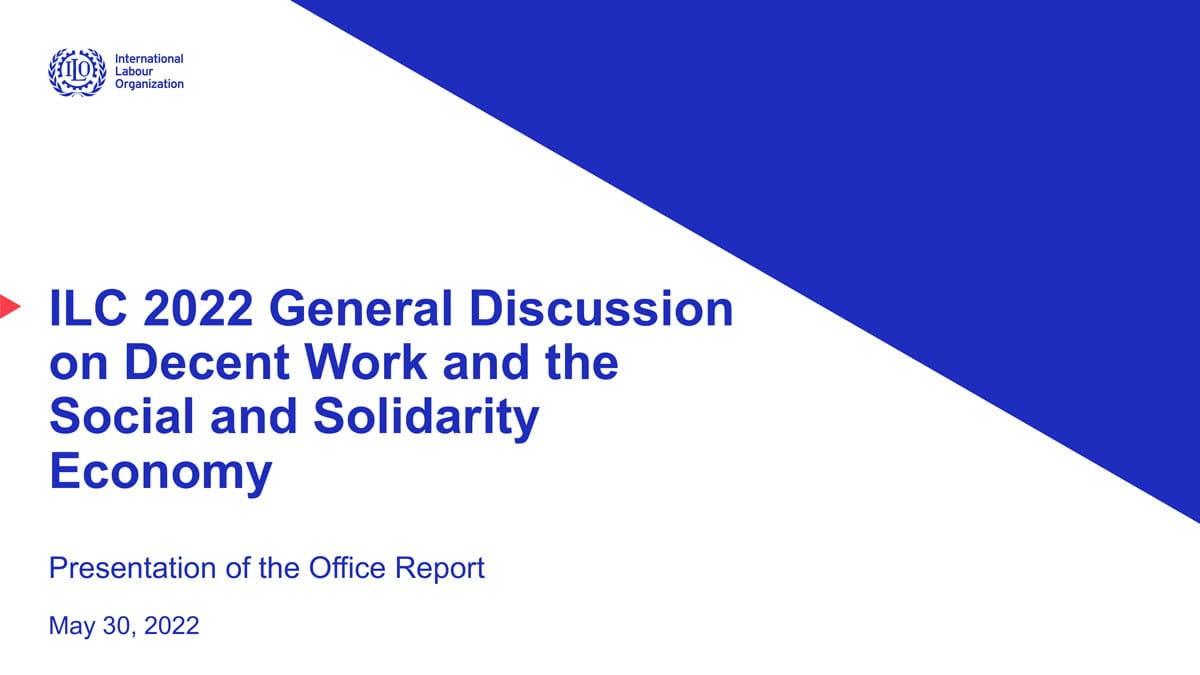ILC 2022 General Discussion on Decent Work and the Social and Solidarity Economy
- In line with international labour standards, what should be a universal definition of the social and solidarity economy, taking into account its values, principles, and organizational forms?
- What are the key challenges and opportunities for the social and solidarity economy to advance decent work and sustainable
- development, to contribute to sustainable economic growth and to achieve more inclusive and sustainable economies and societies? How can the social and solidarity economy further contribute to decent work, full, productive and freely chosen employment and improved living standards for all?
- Taking into account the history and nature of the social and solidarity economy, what is the role of the governments and social partners in promoting its contribution to a human-centred recovery that is inclusive, sustainable, and resilient?
- Building on the century-long experience of the Office in supporting the ILO Constituents, in partnership with the social and solidarity economy actors, what priority actions and measures should the Office take to promote the social and solidarity economy for a human-centred future of work?
View list of all: Presentations

